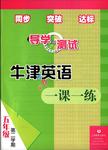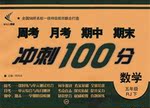题目内容
【题目】完形填空,阅读下面短文,从短文后各题所给的四个选项(A、B、C和D)中,选出可以填入空白处的最佳选项。
Once upon a time in a land far far away, there was a 1old man who loved everything. Animals, spiders, insects…
One day2 walking through the woods the nice old man found a cocoon(茧) of a butterfly. He 3 it home. A few days later, a small 4 appeared;he sat and watched the butterfly for several hours 5 it struggled to force its body through that little hole. Then it seemed to 6making any progress. It appeared as if it had gotten as far as it could and it could go 7farther.
Then the old man decided to help the 8, so he took a pair of scissors and9 the remaining bit of the cocoon.
The butterfly then came out 10.
11 it had a swollen body and small, shriveled(皱缩的) wings. The old man 12 to watch the butterfly because he expected that, at any moment, the wings would 13 to be able to support the body, which would contract in time. Neither happened ! 14 , the butterfly spent the rest of its life crawling(爬行) around with a swollen body and shriveled wings. It never was able to 15.
What the man in his kindness and haste did not understand was that the restricting 16 and the struggle required for the butterfly to 17 the tiny opening were nature's way of forcing fluid(液体) from the body of the butterfly into its wings so that it would be ready for flight once it achieved its 18 from the cocoon.
Sometimes 19 are exactly what we need in our life. If we were allowed to go through our life without any challenges, it would weaken us. We would not be as 20 as what we could have been. And we could never fly.
(1)A.cold B.kind C.polite D.tiresome
(2)A.unless B.if C.while D.because
(3)A.took B.moved C.circulated D.dashed
(4)A.sign B.shadow C.shade D.opening
(5)A.and B.until C.as D.then
(6)A.stop B.prevent C.appeal D.adapt
(7)A.any B.more C.no D.much
(8)A.cocoon B.butterfly C.animal D.insect
(9)A.take down B.take apart C.cut down D.cut open
(10)A.greedily B.easily C.hardly D.quickly
(11)A.Generally B.Even C.So D.But
(12)A.sought B.lasted C.continued D.began
(13)A.enlarge B.shorten C.tighten D.darken
(14)A.In conclusion B.In time C.In fact D.In particular
(15)A.walk B.fly C.flee D.run
(16)A.wing B.tale C.subject D.cocoon
(17)A.get out B.get through C.get away D.get down
(18)A.freedom B.outcome C.balance D.reliability
(19)A.struggles B.passions C.manners D.spirits
(20)A.weak B.intelligent C.gifted D.strong
【答案】(1)、B
(2)、C
(3)、A
(4)、D
(5)、C
(6)、A
(7)、C
(8)、B
(9)、D
(10)、B
(11)、D
(12)、C
(13)、A
(14)、C
(15)、B
(16)、D
(17)、B
(18)、A
(19)、A
(20)、D
【解析】一位好心的老人用剪刀破茧帮蝴蝶出来,但没想到的是这样破坏了蝴蝶自然破茧的规律,使它的翅膀没有力气飞起来。文章告诉我们:人生需要挣扎我们才会强大,才能飞翔。
(1)B 考查形容词。A. cold冷的;B. kind 和蔼的;C. polite有礼貌的;D. tiresome烦人的。根据句意老人喜欢一切动物可知老人有爱心是和蔼的,根据下文的the nice old man和his kindness也可知答案,故选B.
(2)C考查连词。A. unless除非;B. if 如果;C. while然而,当……时;D. because因为。句意:一天当这个老人从树林里走过时发现了一个蝴蝶茧。此处表时间故选C.
(3)A考查动词。A. took拿;B. moved 移动;C. circulated流通,循环;D. dashed猛冲。此处指老人把蝴蝶茧带回了家,故选A.
(4)D考查名词。A. sign符号,迹象;B. shadow影子;C. shade阴凉;D. opening开口。几天后蝴蝶茧上出现了一个小开口,指蝴蝶要破茧而出,下文的the tiny opening也给了提示故选D.
(5)C考查连词。A. and和,而且;B. until 直到;C. as 当……时;D. then然后。当蝴蝶挣扎着身体从小孔中出来时,老人坐在那观察了几个小时。根据句意选C.
(6)A 考查动词。A. stop停止;B. prevent 阻止;C. appeal请求;D. adapt适应。此处指蝴蝶在破茧而出的过程中似乎停止进展了。故选A.
(7)C考查副词。A. any任何;B. more更多;C. no没有;D. much许多。此处指蝴蝶已近全力但没有进展,从茧中出不来,根据情境选C.
(8)B考查名词。A. cocoon茧;B. butterfly 蝴蝶;C. animal动物;D. insect昆虫。老人看到蝴蝶从茧中出不来,所以决定帮助蝴蝶出来,故选B.
(9)D考查动词短语。A. take down拿下;B. take apart拆开;C. cut down砍到;D. cut open切开。此处指老人用剪刀把茧剪开帮蝴蝶出来,故选D.
(10)B考查副词。A. greedily贪婪地; B. easily 容易地;C. hardly几乎不;D. quickly迅速地。由于老人帮蝴蝶剪开了茧,所以蝴蝶很容易就出来了。根据常识故选B.
(11)D考查副词。A. Generally通常;B. Even甚至;C. So 所以;D. But但是。蝴蝶出来后是浮肿的身体和小的皱缩的的翅膀,此处指蝴蝶状态不是太好,表转折,故选D.
(12)C考查动词。A. sought 寻找;B. lasted持续;C. continued继续;D. began开始。上文提到he sat and watched the butterfly for several hours,此处指老人继续观察蝴蝶,故选C.
(13)A考查动词。A. enlarge扩展; B. shorten缩短;C. tighten变紧;D. darken变黑。因为蝴蝶出来后翅膀是皱缩的,老人希望翅膀伸展开能支撑蝴蝶的身体。故选A.
(14)C考查短语。A. In conclusion 总之; B. In time及时;C. In fact 事实上;D. In particular尤其,特别。句意:事实上,蝴蝶用尽了剩余的力量用浮肿的身躯和皱缩的翅膀爬行。根据句意选C.
(15)B考查动词。A. walk走;B. fly 飞;C. flee逃跑;D. run奔跑。蝴蝶在破茧时用尽了力气,所以没有力气飞起来。故选B.
(16)D考查名词。A. wing翅膀;B. tale故事;C. subject主题;D. cocoon茧。句意:让这个好心且着急的人不明白的是茧的限制需要蝴蝶挣扎着从小开口出来,这是强迫体液流入翅膀的自然方式。此处指茧的限制,故选D.
(17)B考查动词短语。A. get out离开,出去;B. get through通过,度过; C. get away离开;D. get down下来。此处指蝴蝶通过小开口出来,故选B.
(18)A考查名词。A. freedom 自由;B. outcome结果;C. balance平衡;D. reliability可靠性。此处指体液流入翅膀为蝴蝶从茧中获得自由去飞翔做准备,根据句意选A.
(19)A考查名词。A. struggles 挣扎;B. passions热情;C. manners礼貌;D. spirits精神。句意:有时挣扎确实是我们生活中必需的,人生需要拼搏,故选A.
(20)D考查形容词。A. weak 虚弱; B. intelligent聪明的; C. gifted 有才华的;D. strong坚强的。如果不经历人生中的挑战我们就不会强大,就不会像我们可以的那样坚强,就永远不可能飞翔。根据句意选D.

 导学与测试系列答案
导学与测试系列答案 新非凡教辅冲刺100分系列答案
新非凡教辅冲刺100分系列答案